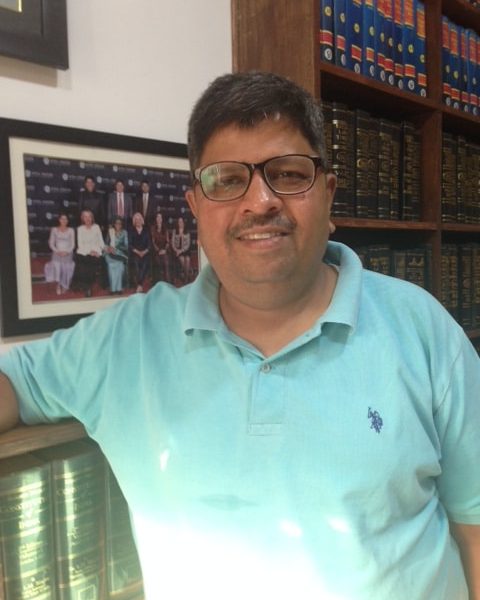
LOS ANGELES (WOMENSENEWS)- Like other campus sexual assault survivors, Sofie Karasek said her attack freshman year by a classmate at the University of California-Berkeley left her distraught at first, wondering whether she should “make a big deal of it,” then puzzled and angry at what she felt was her university's inadequate response after she reported the incident.
A political economy major, president of Cal Berkeley Democrats and a self-described activist, Karasek turned her activism to her new cause of getting colleges to address the epidemic of campus sexual assault.
She is one of many California college students advocating for a bill making its way through the California Legislature that would make California the first state to require all of its public and private colleges and universities to enact an “affirmative consent” standard for sexual assault prevention and adjudication policies.
After her assault in February 2012 during an off-campus retreat for a student organization, Karasek, now 21, is a lead complainant against UC-Berkeley, one of 64 universities across the nation under federal investigation for mishandling of sexual assault under Title IX, the law that prohibits gender discrimination in education.
Karasek said she sought support from the campus Gender Equity Resource Center. “GenEq told my friend who was advocating for me that we should keep (the assailant) close in case he does it again,” she said.
Two months later, after hearing her assailant had attacked someone else, she reported her assault to the university's Title IX coordinator and the Center for Student Conduct. Karasek said she followed up with the administrators, but was kept out of the adjudication process. Seven months after filing her report, she learned that her case had been resolved though an early resolution process. Her attacker had been found to have violated the student code of conduct, and he graduated a semester early; something she learned via email two days before his graduation, she said.
UC-Berkeley spokesperson Janet Gilmore said that while she could not comment on an individual case, the university is “dedicated to encouraging students to report (sexual assaults) and supporting them throughout the process, (and perpetrators) would face lengthy suspension or dismissal from the university.”
The university has recently added staff and services to better support sexual assault victims, and this year has improved it sexual assault prevention policy, Gilmore added.
Changing a Mindset
“The ‘boys will be boys' culture has predominated campus culture as well as administrative action,” said California State Sen. Kevin de Leon, a Democrat from Los Angeles and co-author of the Student Safety: Sexual Assault, or “affirmative consent,” legislation, which could reach Gov. Jerry Brown's desk by the end of summer.
“They think it's just boys getting crazy and drunk, being irresponsible,” de Leon added. “It's time to change that mindset.”
Affirmative consent means “affirmative, conscious and voluntary agreement to engage in sexual activity,” according to Senate Bill 967, which also states that “lack of protest does not mean consent, nor does silence mean consent (and) affirmative consent must be ongoing throughout a sexual activity and can be revoked at any time.”
“With affirmative consent, you're participating proactively,” de Leon said. “You can't consent if you're inebriated. That goes against ‘no means no.' How can you say no if you're incapacitated?”
“The existence of a dating relationship … should never by itself be assumed to be an indicator of consent,” the bills says.
And it calls for a preponderance of evidence standard in adjudicating assault cases – essentially shifting the burden of proof from the alleged victim to the alleged perpetrator. (For a discussion by Wendy Murphy, a Title IX prosecutor, of how this shifts legal recourse on campus read more here.)
The bill also calls for collaboration with community-based support organizations, such as rape crisis centers. It would amend the state's Education Code to require all of California's public and private colleges and universities to comply or lose state financial aid for students.
The bill, which has bipartisan support, is scheduled to go the Assembly Appropriations Committee this week and the full Assembly around Aug. 15. Sen. de Leon expects it to reach the governor's desk by Aug. 31. If approved, it would go into effect in January.
Supporters — including the California State University and the University of California student associations, state and national women's organizations and the California Police Chiefs Association – believe the law could begin to reduce the problem of rape on college campuses, where 1-in-5 women are sexually assaulted, according to U.S. Justice Department statistics.
Opponents — including the Foundation for Individual Rights in Education, Stop Abusive and Violent Environments and the National Coalition for Men-say the “affirmative consent” mandate could deem most campus sexual activity “assault,” and they are concerned that the legislation's preponderance of evidence standard would undercut due process for alleged perpetrators. They and others contend that it could increase false rape accusations and convictions.
Faculty, Staff Undertrained
In California, an audit of four public universities' sexual assault policies during the 2013-14 academic year found the universities did not sufficiently train faculty and staff in responding to and reporting incidents of sexual assault. The four universities — UC-Berkeley, UC-Los Angeles, Cal State Chico and San Diego State — also fell short in their sexual assault prevention education programs for students, particularly incoming students, according to the California State Auditor's report released in June.
While agreeing on the need to address the campus sexual assault crisis, Joe Cohn, legislative and policy director for the Foundation for Individual Rights in Education, or FIRE, said his Philadelphia-based civil liberties organization agrees college sexual assault policies need to go beyond “no means no.” But he thinks the bill's “preponderance of evidence standard” tilts the scales too heavily against those accused of assault.
“If proving affirmative consent becomes law there will be no practical, fair or consistent way for colleges to implement these newly mandated prerequisites for sexual activity,” Cohn said. “Under this standard, an accused student would be found responsible of a serious and heinous crime if the fact-finder concluded that there was a mere 50.01 percent likelihood the accusations were true.”
He said this threshold might be fair if universities had the “robust procedural protections one finds in actual courts — a legally trained judge, the right to discovery, the right to cross examine witnesses (and) the right to counsel.”
Cohn added that the recent flood of reports of universities' mishandling of sexual assault cases makes his organization increasingly skeptical of colleges' competence to adjudicate these complaints. “Sexual assault is one of the most heinous crimes a person can commit,” Cohn said. “Ensuring that each case is referred to law enforcement and providing those accused with due process is vital.”
Caroline Heldman, a professor of politics at Occidental College, helped students at her school file a federal Title IX complaint against the Los Angeles college, which is one of the 64 under federal investigation. In September Occidental reached a settlement agreement with at least 10 of the more than 30 student and alumni complainants.
Heldman, who consulted on the California bill, said that while the affirmative consent bill is not perfect, it's a step in the right direction. Verbal consent, which was in an earlier draft of the state bill but was criticized as too stringent by some, would have been stronger, Heldman said. There are many students for whom any sort of nonverbal communication standards will not work, such as autistic students, she said.
Heldman added that she believes the pushback against the verbal or affirmative consent standard is reflective foremost of our entrenched rape culture. “Rape culture comes from media, religion … Men have long used sex as a way of controlling women, and we accept it in our culture and we glorify it,” Heldman said.
If the California bill becomes law, it won't be a quick fix, she said, but college campuses are the place to begin to shift culture on a small scale.
Would you like to Send Along a Link of This Story? https://ihtbd.com/2014/08/calif-campus-rape-bill-goes-beyond-no-means-no/


